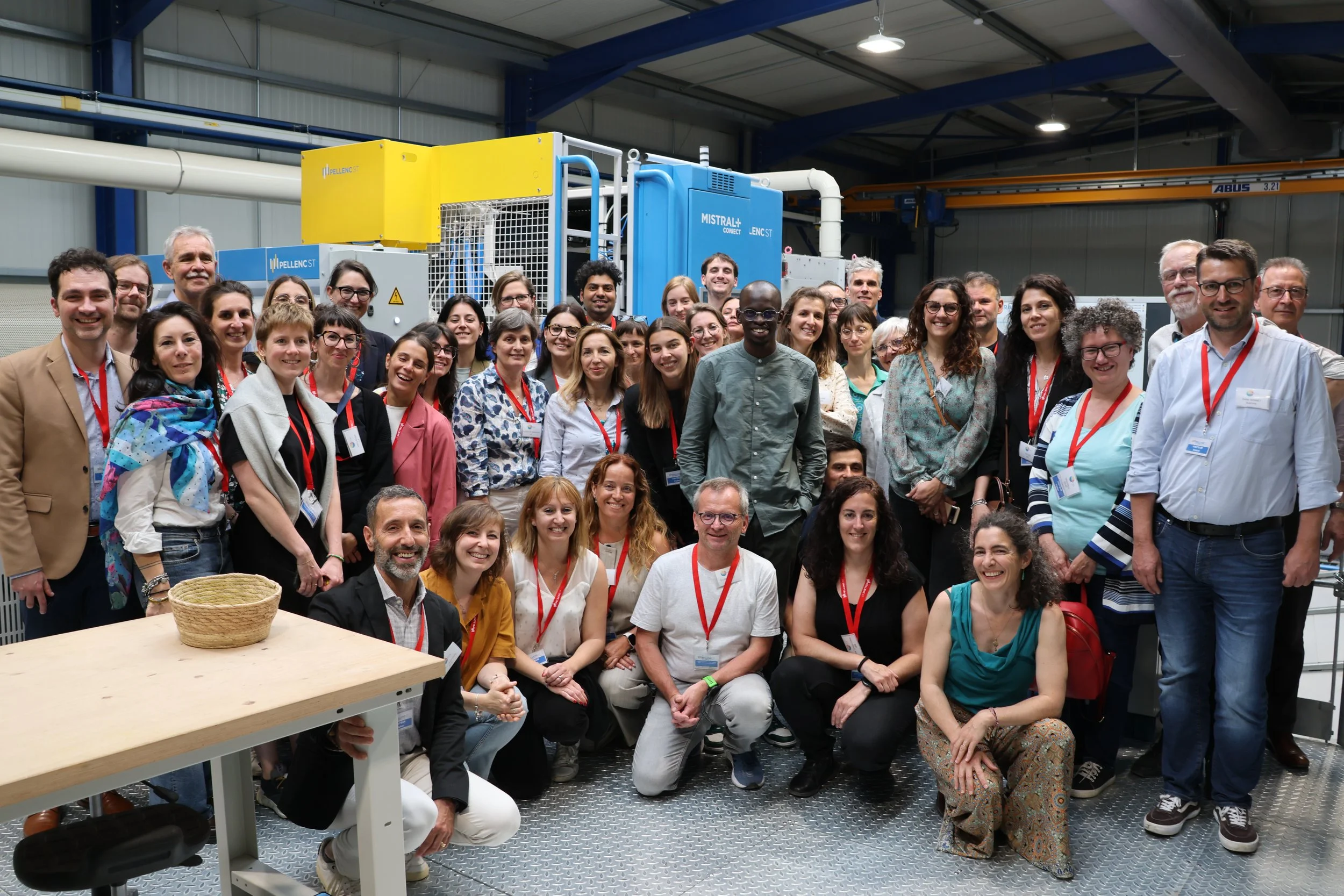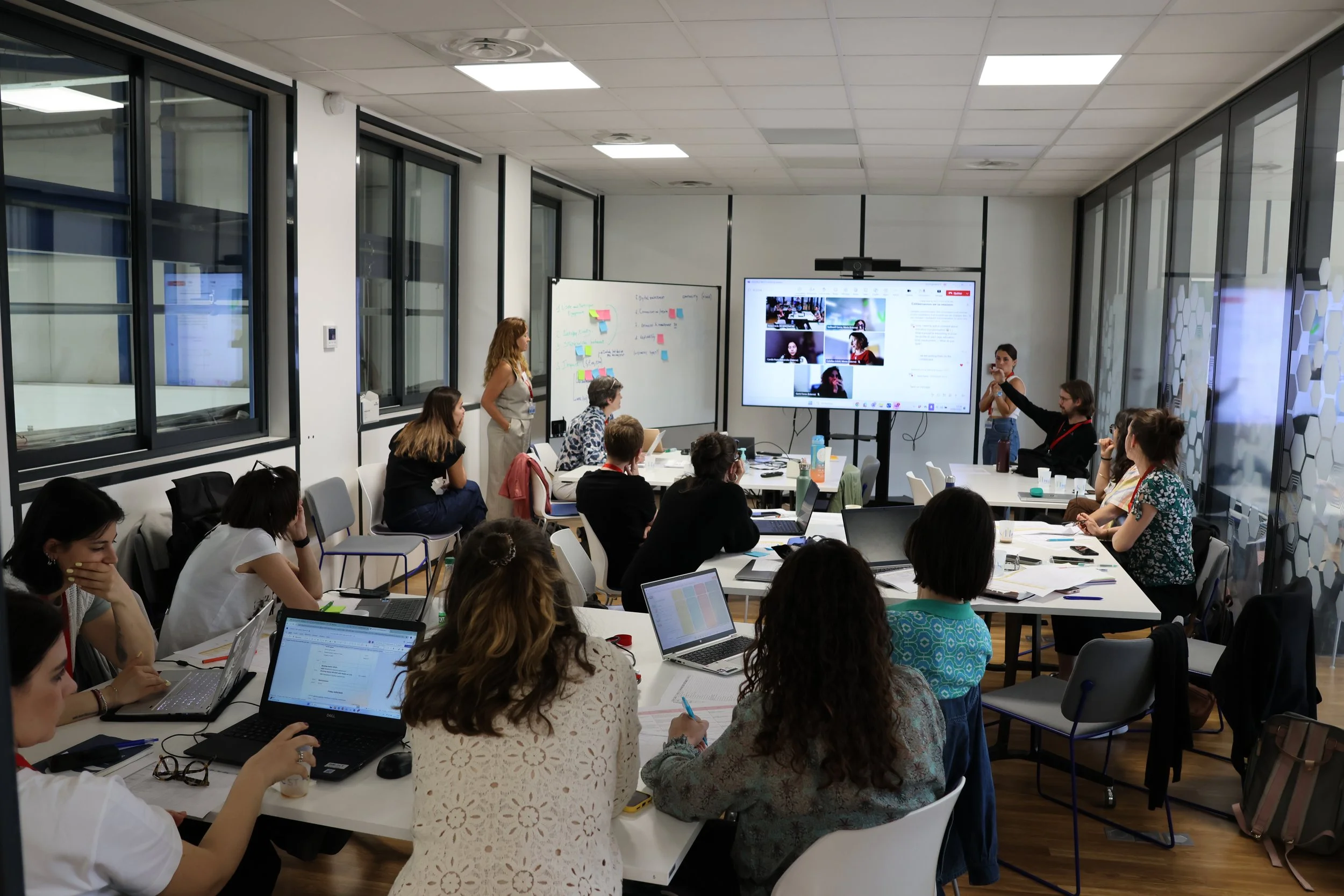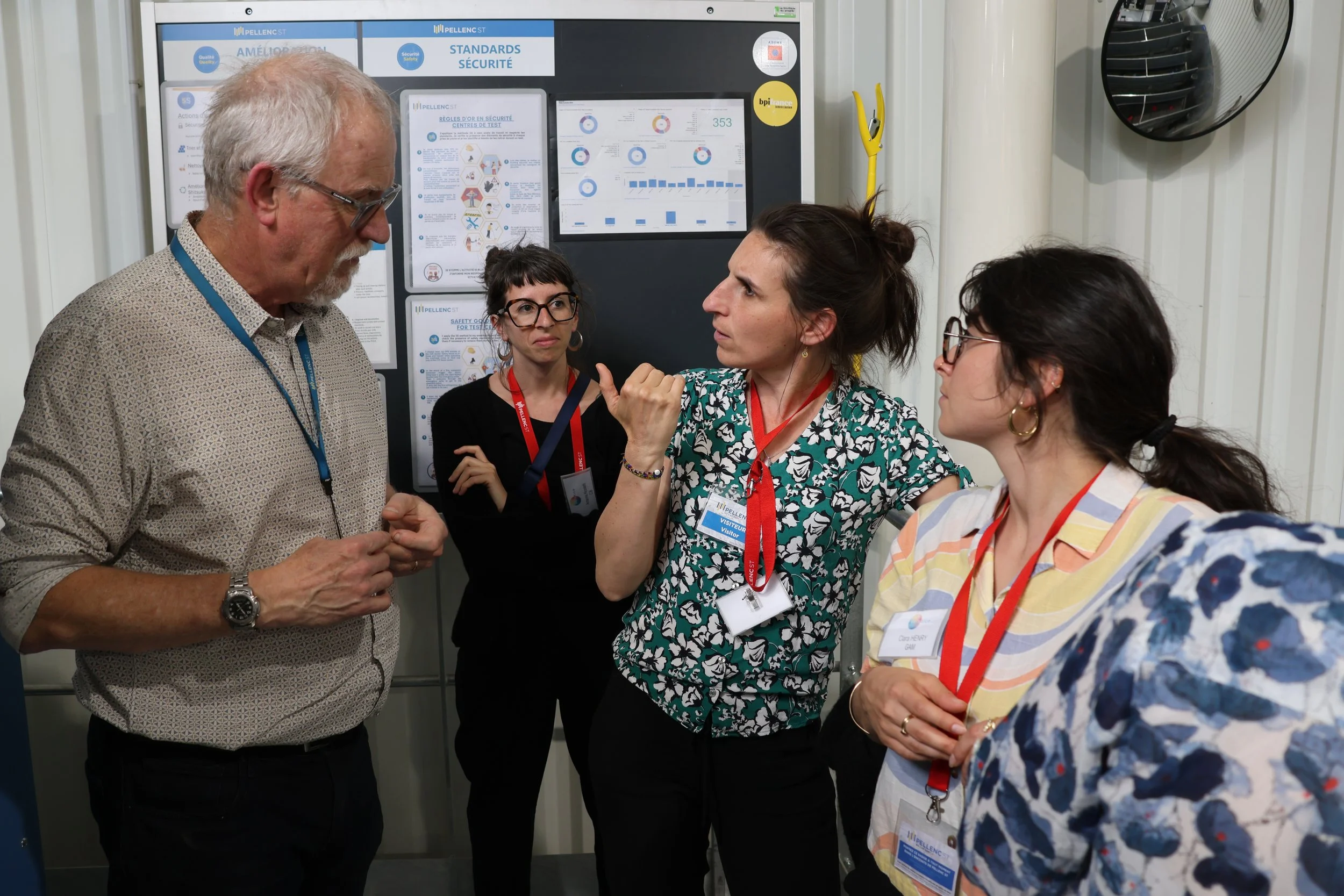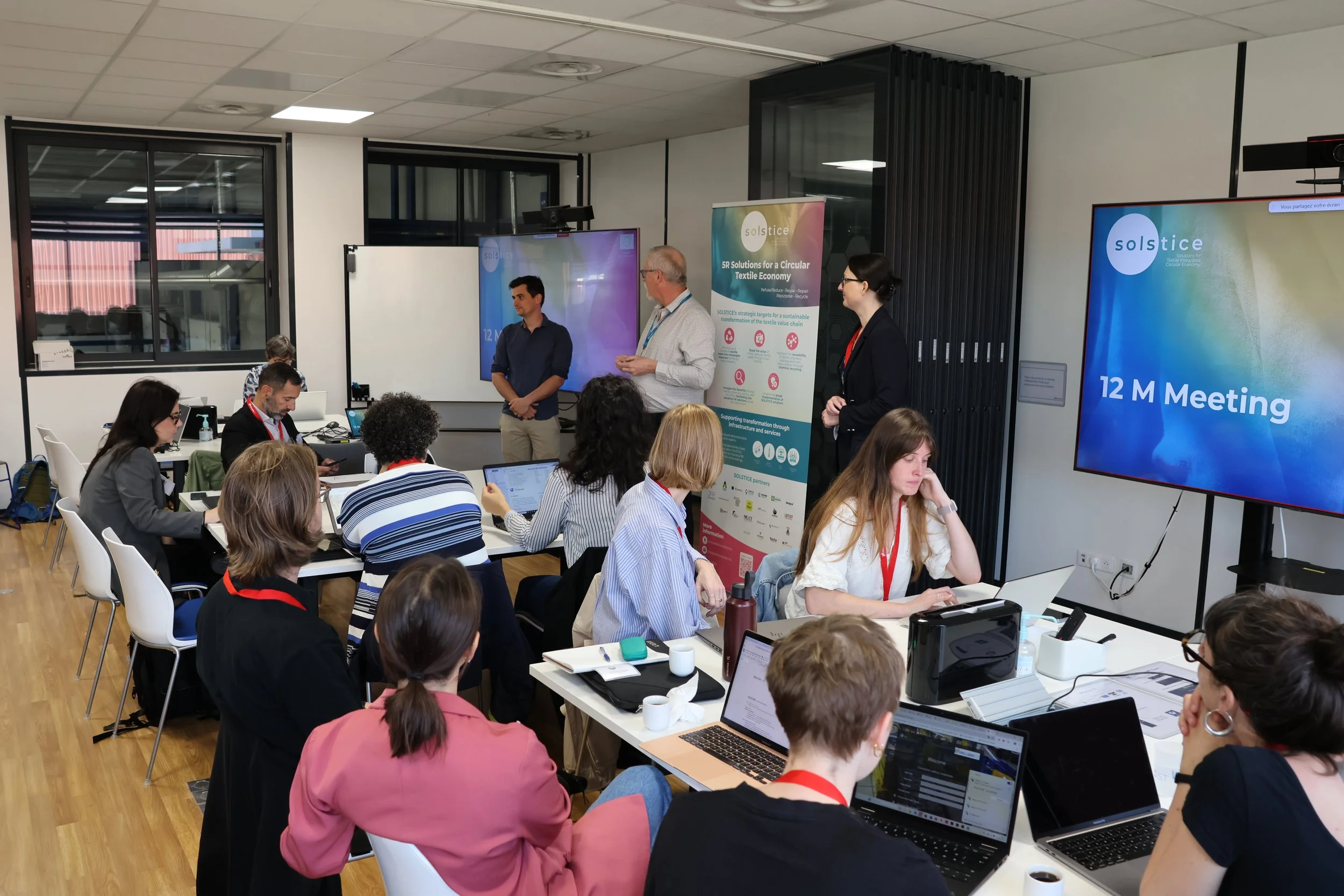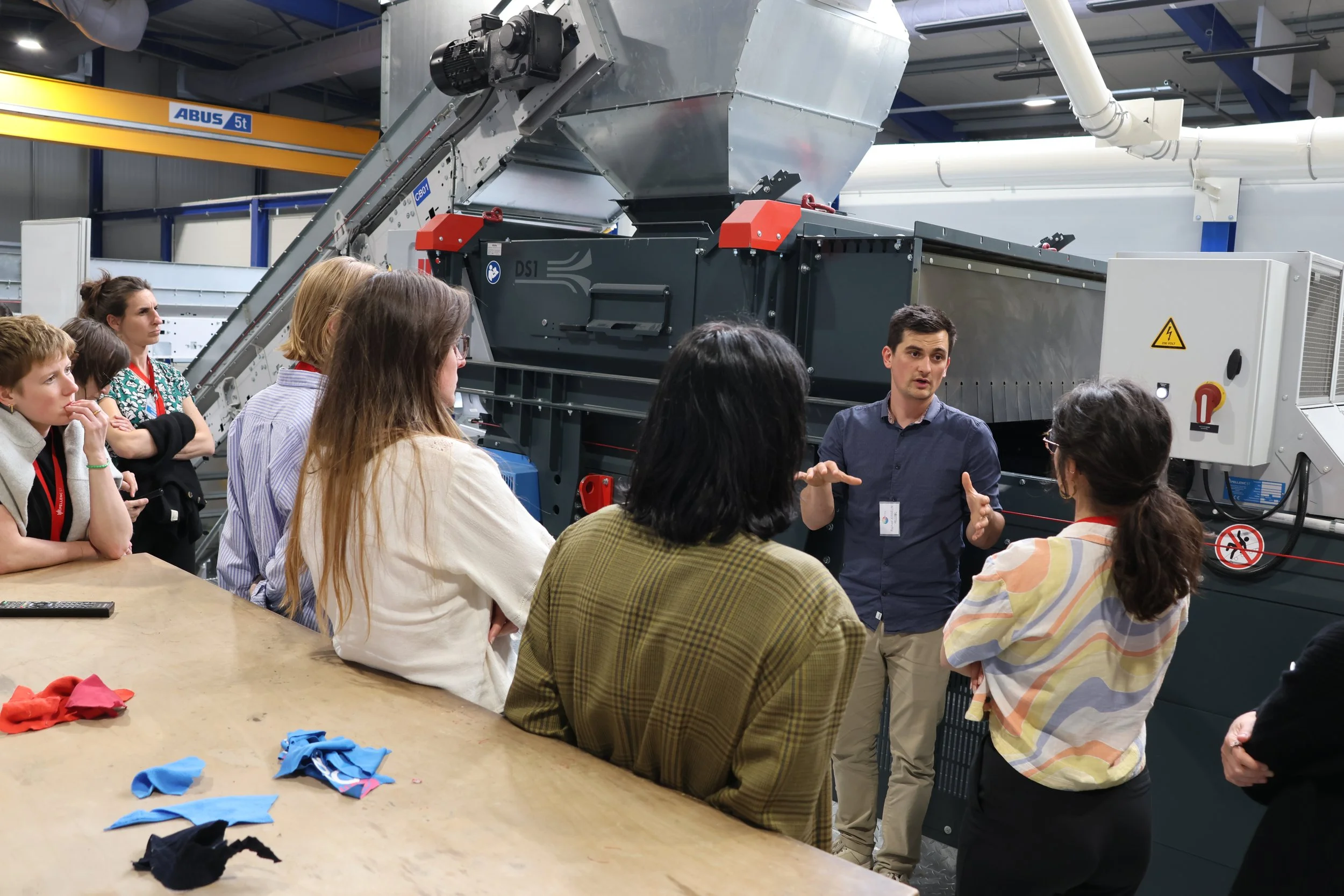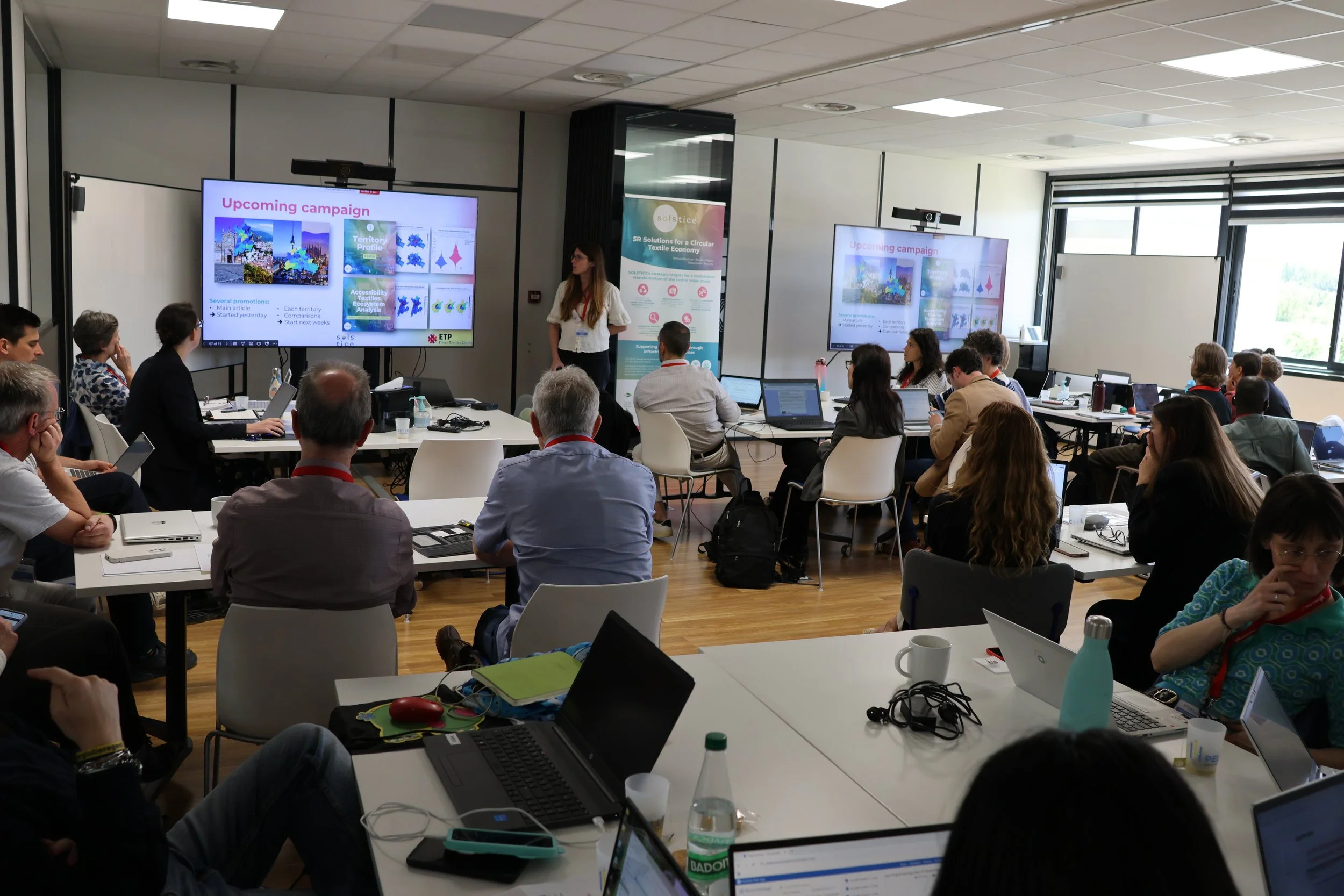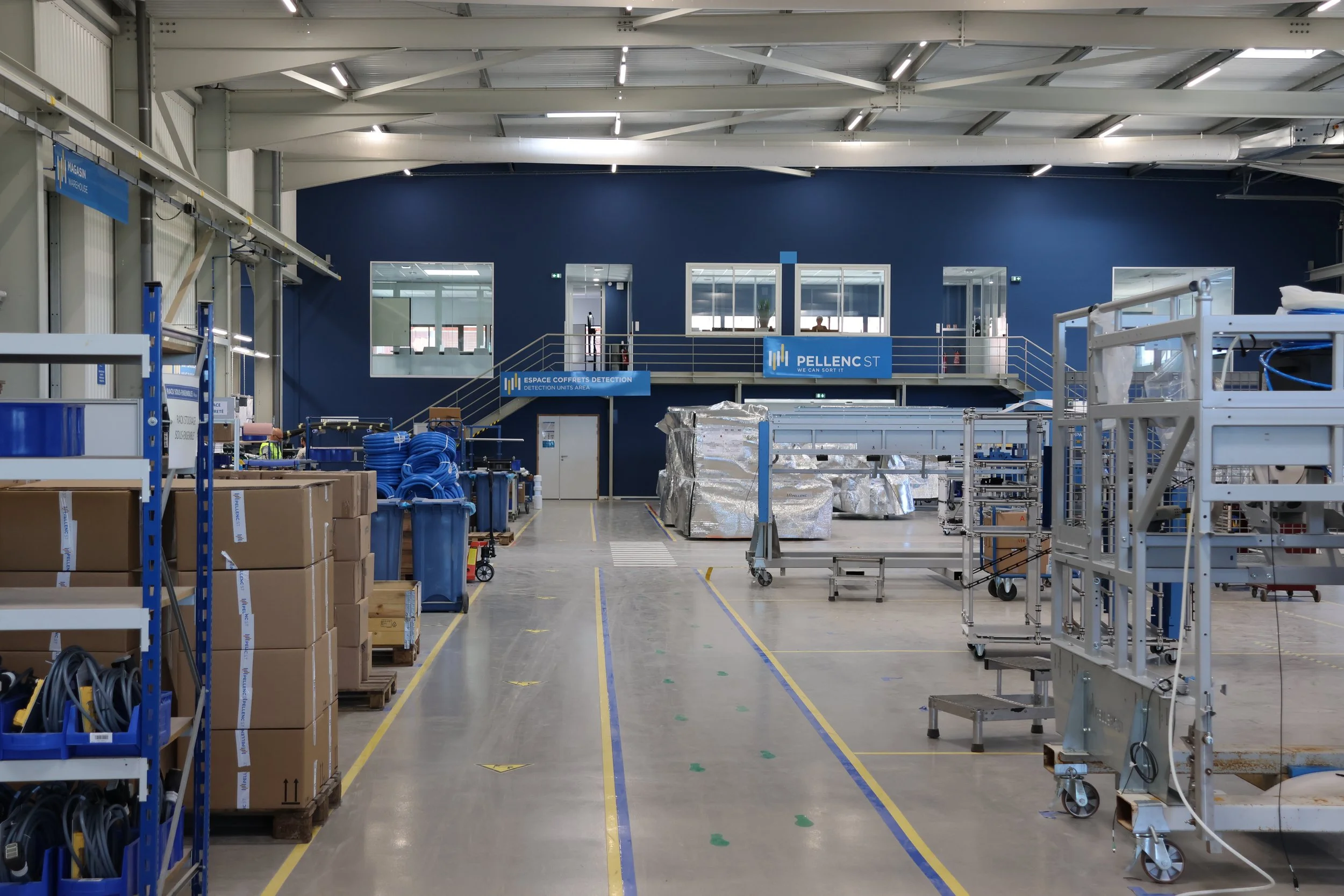SOLSTICE project partners meet in France for General Assembly
On 22–23 May 2025, Textile ETP took part in the third General Assembly of the SOLSTICE consortium, held in Pertuis, France, and hosted by project partner Pellenc ST.
Day 1: Progress Updates, workshops and a visit at Pellenc ST
The assembly kicked off on 22 May with updates from all consortium partners. Each organization shared the latest developments in their respective work addressing progress made, challenges encountered, and next steps in achieving the SOLSTICE project mission.
Afterwards, the consortium participated in a series of workshops, one of which led by the German Institute for Textile and Fibre Research (DITF) introduced the principles of material flow cost accounting (MFCA) and provided insights into polyamide (PA) recycling. Another workshop, led by Circle Economy, bridged Work Package 2 and Work Package 3, focusing on key performance indicators (KPIs) for monitoring and evaluating the 4 regional pilot projects.
In the late afternoon, the consortium visited the project partner Pellenc ST for an a tour of their production site and Innovation Center in Pertuis. Partners observed air-blow sorting systems in action, powered by compressed air, and explored the company’s validation and quality control lines. A key highlight was the modular line for
AI-driven innovation, showcasing how artificial intelligence is enhancing sorting performance. The tour concluded with a live demonstrations of textile sorting processes, including the purification of clippings and whole garment sorting.
Day 2: Scaling Solutions and Building Strategies
On 23 May, the focus shifted to replication, scaling, and transnational policy integration. Participants explored how to adapt and transfer circular solutions to new regions and value chains, as well as strategies to support interregional implementation through policy frameworks. They also discussed the development of exploitation strategies tailored to different stakeholder groups, including industry, research, and local communities.
The assembly concluded with a detailed review of findings and progress from our four territorial pilots: Grenoble-Alpes Métropole, Berlin, Prato, and Catalonia. These case studies continue to inform the SOLSTICE roadmap as we strive to create adaptable and effective circular textile infrastructures across Europe.
For more information and updates on the SOLSTICE project, please visit www.solstice-project.eu
